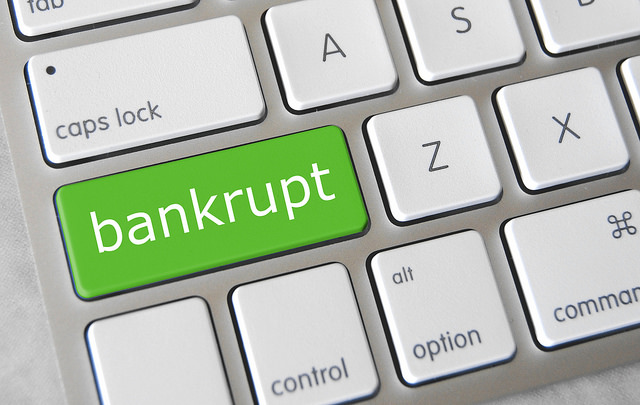
First things first: unlike what most of us were taught growing up, there is no shame in declaring bankruptcy. Life happens. It is not always completely and totally under our control and sometimes parts of it–like our finances–get away from us. In this article we are going to talk about bankruptcy: what it is, how it works, whether you should declare it yourself, etc.
Bankruptcy: The Debt Itself
So many people assume that all debt accrues from bad decisions or poor responsibility. This isn’t always the case! In fact, it is rarely the case (or you’d see far more 20-somethings filing after blowing their savings on electronics in-between jobs)! For example, someone who becomes suddenly ill or involved in an accident but is under insured could find herself facing tens of thousands of dollars of debt. Some people get sued. Perhaps your company was downsized and you lost your job after taking out a mortgage. Things happen! Do not beat yourself up if you are the victim of bad circumstances. In these cases, bankruptcy is a life-line, not a death-sentence.
Should You Declare?
There is a lot more that goes into deciding whether you should declare bankruptcy than the amount owed. Bankruptcy, for example, is not something you can declare simply because you do not want to be burdened with debt anymore or because you simply do not want to pay for debt that you have accrued. If it were, everybody would do it all the time! To figure out whether or not you should or even can declare bankruptcy, you will need to meet with an attorney.
Your attorney will look at your bigger financial picture: how much you owe and to whom–some debts, like student loans cannot be written off, how much money you have coming in, your ability to earn, the cost of the bankruptcy filing itself, etc. She will go over all of this with you and help you decide whether or not it would be the financially responsible thing to do. Sometimes it isn’t! For example, if your earning potential is high, it might be in your better interest to work with a debt consolidator instead of declaring bankruptcy. Sometimes, the cost of filing is more than you owe and you cannot write off your attorney’s fees in the bankruptcy itself.
If You Declare
Try not to panic. At this point, you are probably imagining a life spent toiling away with a terrible credit record, unable to buy anything ever again. However, according to Doan Law Firm, a bankruptcy firm in San Diego, for many people bankruptcy actually improves their credit ratings and scores because erasing the debt is seen as a positive step in the eyes of the credit bureaus.
Work with your attorney to figure out which type of bankruptcy you should declare. For many people, Chapter 7 is the way to go but in some circumstances Chapter 13 is a better option. Your attorney will also help you fill out and file your paperwork correctly and deal with any collectors or creditors who want to dispute your claims. The process is not quick. It will not be over in a day. It can take weeks or even months to declare, but try to be patient with the process. Work with your attorney and talk to her about your fears and ask her all of your questions. Keep all of your appointments. The more diligent you are, the easier the process will be for everyone.
And while it is resolving, to help deal with the stress of all of that waiting, start looking for ways to rebuild your financial house and get your budget under control.
Preparing for the Future
One of the best things you can do for yourself, if you are declaring bankruptcy, is to take a course in basic personal finance. This isn’t meant to be insulting. A lot of people do not understand personal finance beyond “try to spend less than you earn.” A personal finance course will teach you how to budget, how to invest, etc. Some form of this course will be required as part of your bankruptcy filing requirements.
Once you’ve taken your courses and have learned about how to manage your finances more responsibly, it’s time to start developing some good financial habits. Try to think of your bankruptcy as a fresh start, allowing you to “be good” from the very beginning again, just like when you got your first job or moved out on your own for the first time. Let yourself feel relieved of the pressure instead of ashamed of failing. Because, really, bankruptcy isn’t failing. It’s asking for help to get better!
Image Credit
